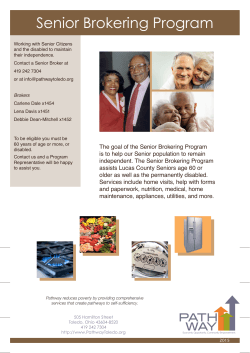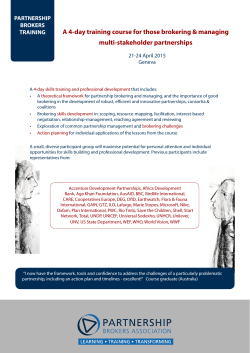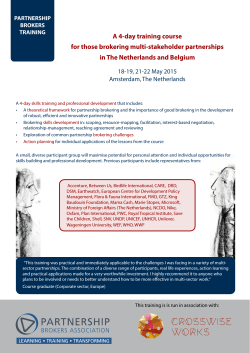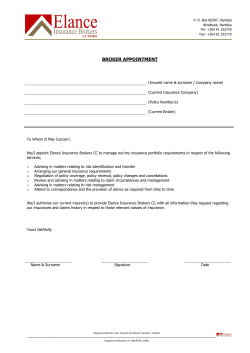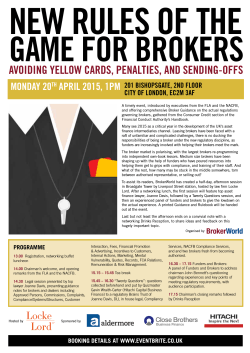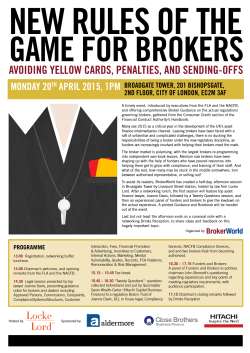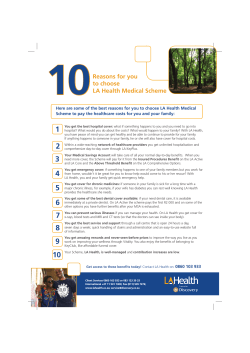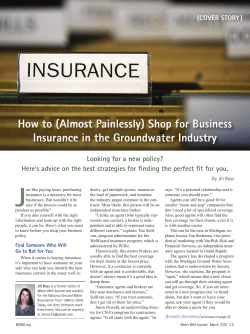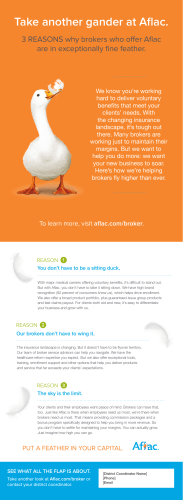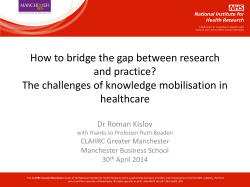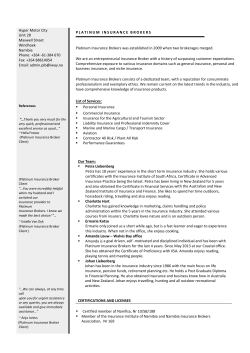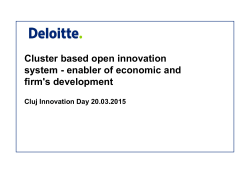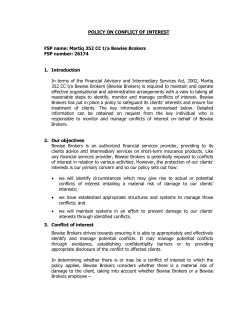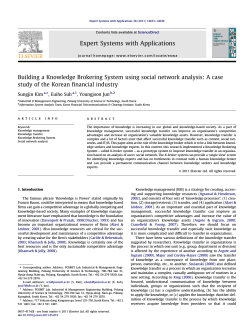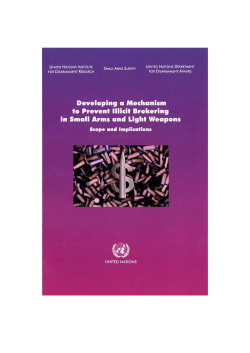
THE `DARK SIDE` OF KNOWLEDGE BROKERING Dr Roman Kislov
THE ‘DARK SIDE’ OF KNOWLEDGE BROKERING Dr Roman Kislov, Manchester Business School Knowledge brokers Where do they work? Inter-organisational networks University-industry collaborations Collaborative research partnerships multi-organisational and/or multiprofessional contexts What formal positions do they occupy? Knowledge transfer associates Diffusion fellows Technology transfer managers Knowledge exchange officers Facilitators intermediary, peripheral, boundary positions What are they used for in healthcare? Translation of research evidence into clinical practice Promoting interaction between researchers and end-users of research Developing capacity for evidence-informed decision-making There is always a ‘dark side’ ‘Any system of purposive action will inevitably generate secondary outcomes that run counter to its objectives.’ (Linstead et al., 2014) KNOWING DOING ‘Knowledge brokering is ... one of the ‘inbetween’ missing pieces than can bridge the know-do gap for health services.’ (Lomas, 2007) 1. Tensions between different dimensions of brokering Knowledge management The ‘bright side’ of knowledge brokering Spanning boundaries Linkage and exchange Enabling evidence-based decision-making Connecting practices Promoting collaboration Facilitating positive change What knowledge to broker? Facilitation of change Facilitation often receives less attention than other dimensions, which threatens learning and sustainability Sometimes knowledge brokers shift from enabling others towards doing themselves, with little brokering Research evidence Clinical skills Clinical knowledge Managerial knowledge How to broker this knowledge? Contextual knowledge Project management Change management Influencing skills Brokering skills Culture Processes Policies People Who to deploy as a knowledge broker?.. …a clinician? High clinical authority Low managerial skills a doctor? Significant influence Lack of interest in brokering a nurse? Limited influence Clinical & contextual knowledge Low clinical credibility Managerial knowledge & skills …a manager? 3. Tensions caused by ‘in-betweenness’ Lack of role Bridging the gaps Helping knowledge to flow 2. Tensions between different types of knowledge clarity Lack of guidance Feeling incompetent Unclear Ability to carve Feeling career path your own role isolated Need to engage with Brokering not an organisational multiple stakeholders priority Time is needed to Most interventions embed knowledge in are short-term practice Competition with other brokers for recognition and Peer support is reward helpful Need to maintain Too easy to be influenced neutrality and by the more powerful equanimity party Can a single ‘knowledge broker’ bridge the gap? How to manage these tensions? The way forward You can’t do it on your own! Knowledge brokering is a group process Multiple links with healthcare practices at different levels are needed Team members have complementary skills Do not forget about the actual ‘brokering’! Use policy-driven targets and incentives to advantage But support the facilitation of change and brokering of tacit knowledge Identify and engage with ‘organic’ knowledge brokers who are already embedded in healthcare organisations Support the brokers! Provide learning, development and promotion opportunities Cultivate knowledge brokers’ communities of practice Acknowledge the importance of knowledge brokering for organisational life
© Copyright 2025
